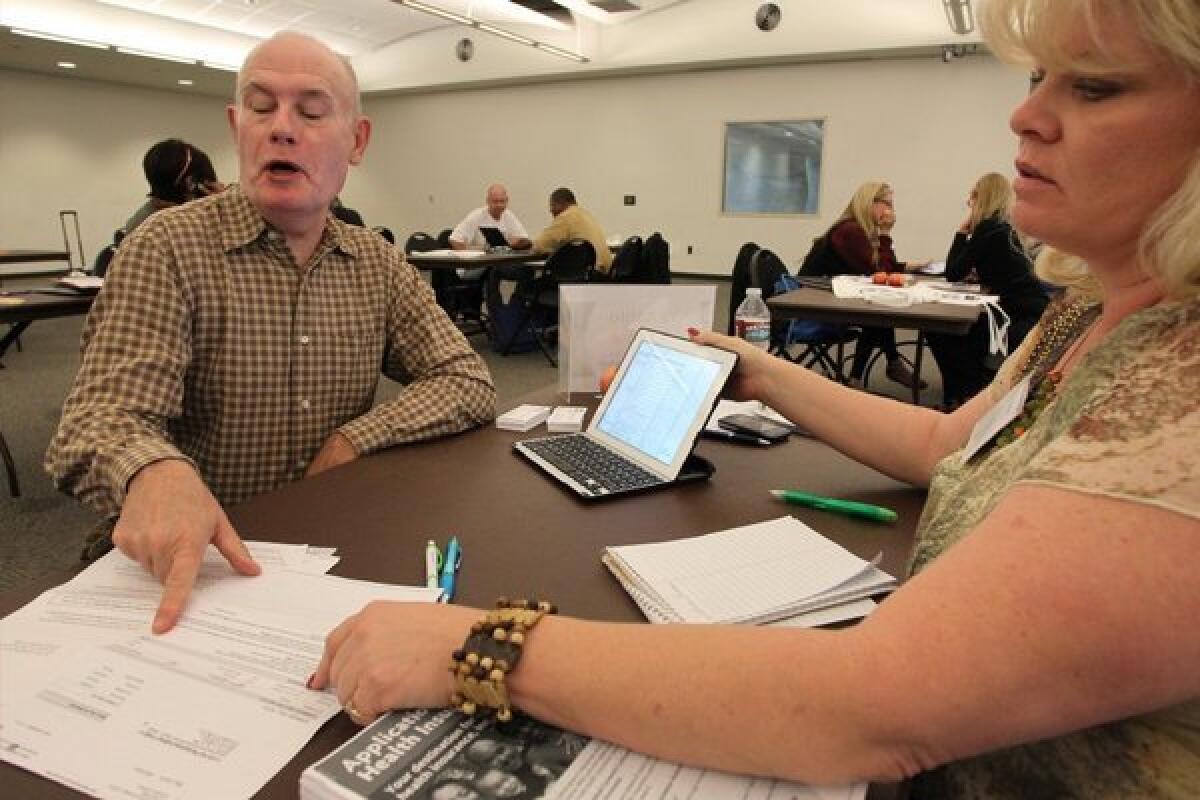Who are the new uninsureds?

It was always the case that the nation’s medically uninsured were disproportionately non-white, poor and southern. These people were the prime targets of the Affordable Care Act, which aimed to bring them coverage in part by the federally-funded expansion of Medicaid.
Two surveys released Tuesday by the Kaiser Family Foundation show how the demographics of the uninsured will change, thanks to the ACA. More precisely, the surveys show how they will change as a result of inaction -- the failure of 25 states to expand Medicaid, which the ACA’s drafters expected to address the coverage problems of the poor. One study examines the overall characteristics of the new uninsured, and the other focuses on their racial and ethnic backgrounds.
The short version is this: henceforth, America’s uninsured population will be composed even more disproportionately of minorities, the poor and residents of the South.
What sticks out in these studies is that disdain for the problems of the medically uninsured is a continuum: the states whose policies or whose indifference have contributed to high levels of uninsured residents up to now are generally the states doing the least to improve their lot.
A few states plainly have taken the matter in hand. California, for instance, which historically has had a high percentage of uninsured residents (21% in 2012, ranking eighth), also has moved aggressively to take advantage of the provisions of the ACA. The states that have thus far scorned Medicaid expansion also tend to be those with the tightest Medicaid restrictions -- their average income eligiblity mark, measuring how poor you have to be to qualify for the program, is only 47% of the federal poverty line.
The South is the hotbed of resistance to Medicaid expansion: among the 14 states usually defined as the South, only Arkansas, Kentucky and West Virginia are expanding the program. That’s despite the generosity of the federal government, which will cover 100% of the cost of the expansion for its first three years, and more than 90% through 2022.
That’s unfortunate, because the region also has an especially large concentration of uninsured residents. Of the 17 states with percentages of uninsureds equal to or worse than the national average (18% in 2012), nine are southern states.
Consequently, the Medicaid “coverage gap” is largely a phenomenon of the South. The “gap” refers to the population segment earning less than 100% of the federal poverty line and more than their state’s Medicaid eligibility ceiling. (Under the ACA, people earning more than the poverty line and not covered by the Medicaid expansion are eligible for federally-subsidized insurance premiums.) Of the more than 4.8 million Americans falling into the gap, 3.6 million live in the 11 southern states not expanding Medicaid.
In 2012, according to the Census Bureau, 19% of the uninsured were black -- that’s the pre-ACA figure. But 27% of those in the coverage gap are black, which obviously will drive up the minority share of the uninsured. Some 51% will be ages 35 to 64; that compares with the 37% share of the uninsured who fall into that age group now.
The shift toward older uninsureds isn’t surprising. Young people are among the chief beneficiaries of the healthcare reform; they can stay on their parents’ employer-sponsored health plans until the age of 26, and they get lower premiums in the exchange-based individual plans than their elders.
Middle-aged adults, meanwhile, are especially disadvantaged in states that don’t expand Medicaid. That’s because the ACA was designed to bring low-income childless adults, who are barred from Medicaid in many states, into the program.
Poor adults, especially those without children, are truly forgotten by our healthcare system -- they will “likely remain uninsured,” the Kaiser researchers observe. Their situation is about to become more desperate, even as the rest of the country starts moving ahead.




